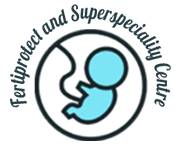Gynecologists, on the other hand, specialize in diagnosing and treating diseases and disorders of the female reproductive system. These diseases can include fertility issues, menstrual irregularities, pelvic floor disorders, sexually transmitted infections, endometriosis, and cancers of the reproductive organs.
Maintain an exercise routine and keep your body active. This is one of the most important tips for normal delivery to avoid cesarean operations. Womens who used to perform their daily activity during their pregnancies have a better chance to give birth naturally than the ones who don’t.
- lack of regular ovulation (the monthly release of an egg)
- poor quality semen.
- blocked or damaged fallopian tubes.
- endometriosis – a condition where tissue, similar to the lining of the womb (the endometrium), grows in other places outside the womb.
Key facts. In vitro fertilisation, known as IVF, is a procedure used to help you get pregnant. In IVF, a human egg is fertilised with sperm in a laboratory then implanted into a uterus. If the fertilised egg (embryo) successfully implants in the uterus, this will result in pregnancy.
You’ll know if you’re pregnant approximately two weeks after IUI. It takes about that long for human chorionic gonadotropin (hCG) to be detected in blood or urine. Your healthcare provider will let you know if you should return for a blood test to detect pregnancy or if you can use an at-home urine test.
You can get pregnant with PCOS. You will likely need to have moderate weight, balance your blood sugar levels, and treat other PCOS symptoms with healthy lifestyle changes and medications. In some cases, fertility medications alone will help you get pregnant. If that doesn’t work, you may need IVF treatment.
